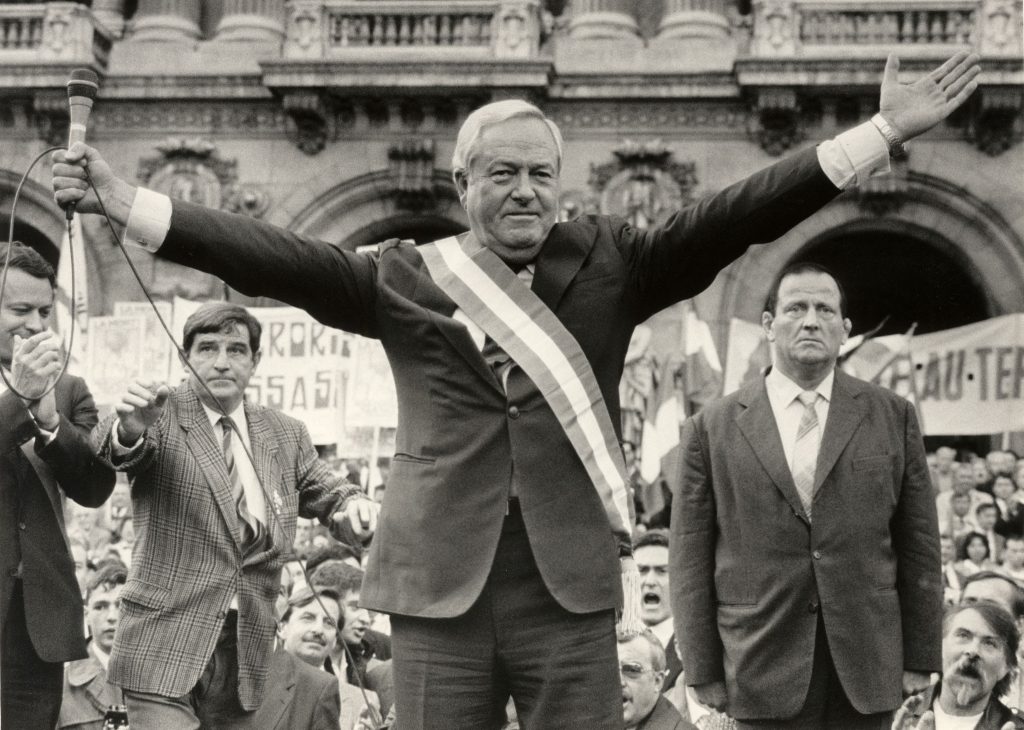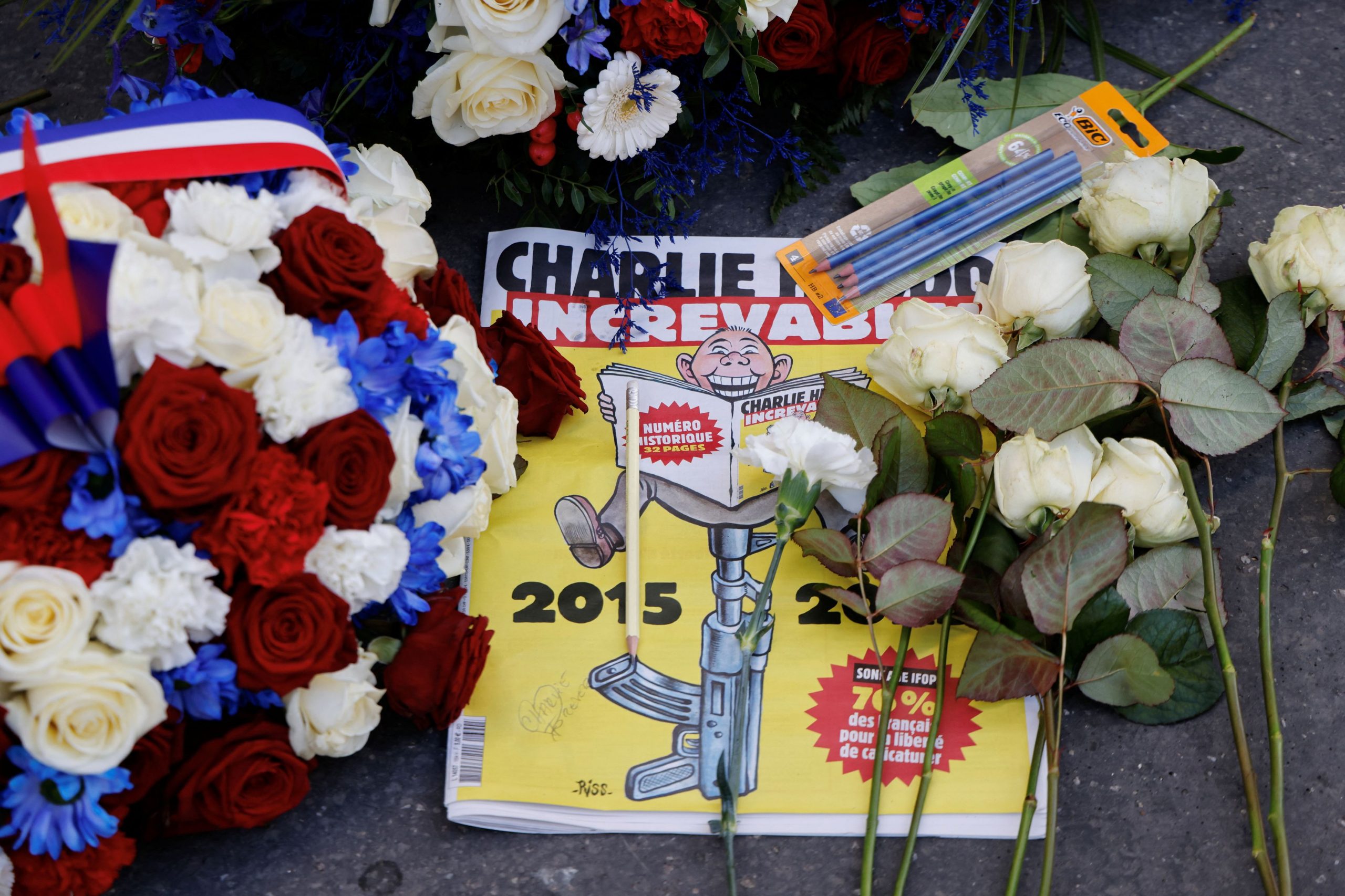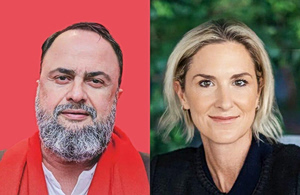Today marks the ten-year anniversary of the violent attack against the French Charlie Hebdo satirical magazine, resulting in the deaths of 12 people.
Charlie Hebdo is notorious for its taboo and radical depictions of all things political, religious, and personal.
On January 7, 2015, two masked gunmen with assault rifles stormed the offices, killing eight members of the editorial staff and four others before fleeing the scene. Days later, they died in a shootout with the police. It was later revealed that the two gunmen were linked to Al-Qaeda and sought to retaliate against an unsavory portrayal of the Prophet Mohammad published several years earlier by the magazine. The attack sparked an ongoing international debate about the boundaries of the free press.
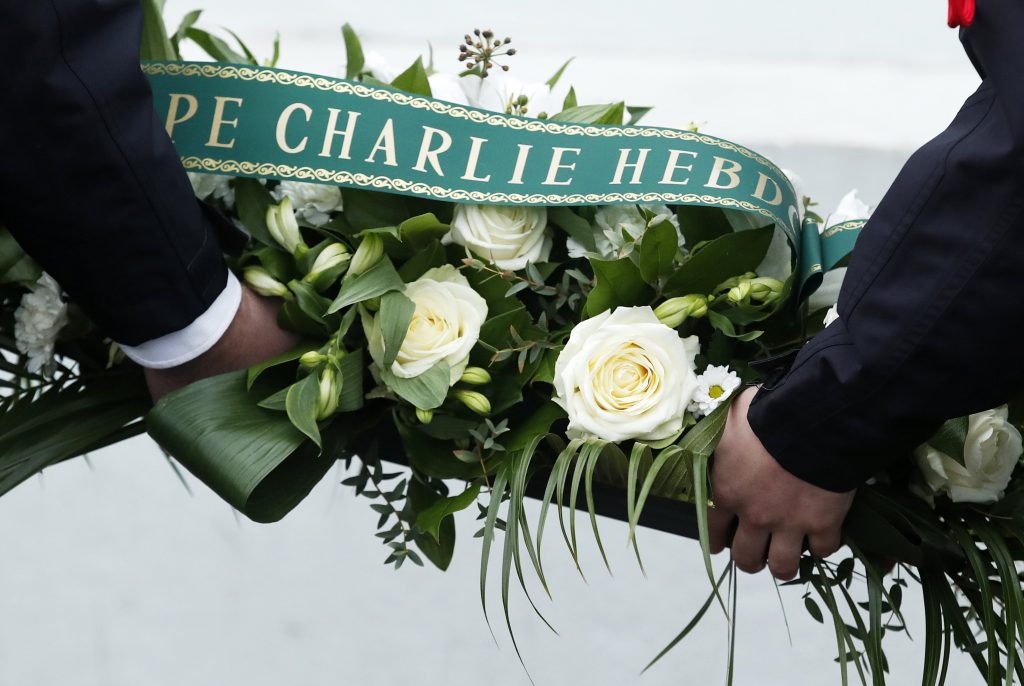
French police officers hold a wreath of flowers before a ceremony outside the Hyper Casher supermarket as France pays tribute to the shoppers at the kosher store who were killed three years ago by an Islamist gunman in Paris, France, 07 January 2018. Macron paid respects to the 17 people killed when Islamic extremists attacked satirical newspaper Charlie Hebdo and a kosher supermarket three years ago on 07 January 2015. EPA/CHRISTIAN HARTMANN / POOL MAXPPP OUT
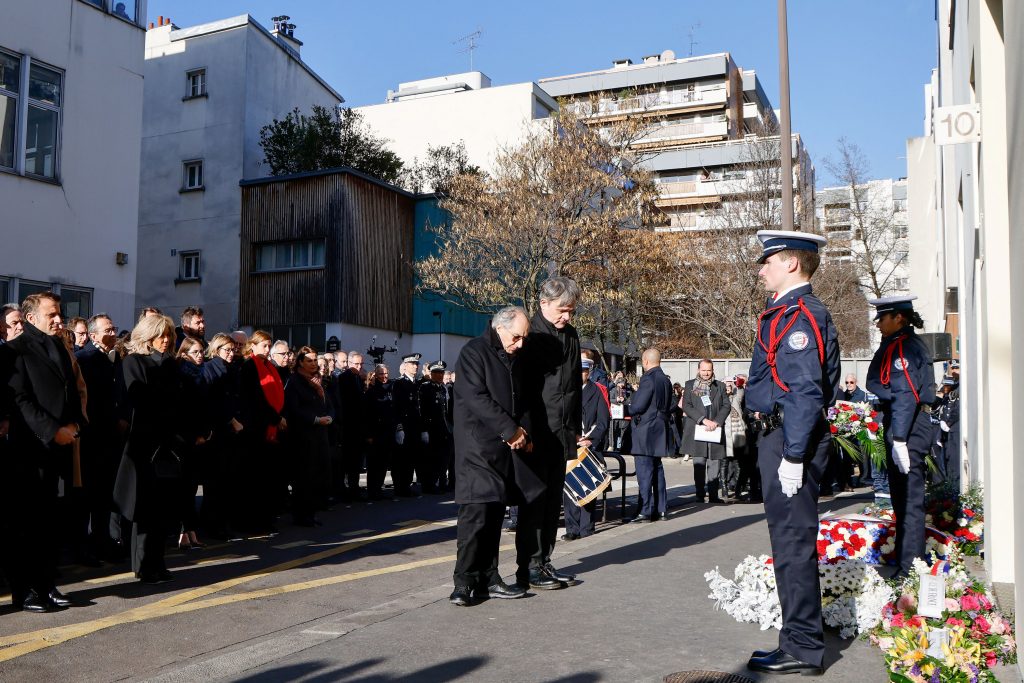
France’s President Emmanuel Macron and his wife, Brigitte Macron stand behind French satirical magazine “Charlie Hebdo” editor in chief Gerard Biard and publishing director Laurent Sourisseau, known as “Riss” as they part in a wreath-laying ceremony as part of a commemoration marking 10 years since an Islamist attack on the Charlie Hebdo satirical newspaper and the Hypercacher jewish supermarket outside the weekly’s former offices in Paris, France, on January 7, 2025. LUDOVIC MARIN/Pool via REUTERS
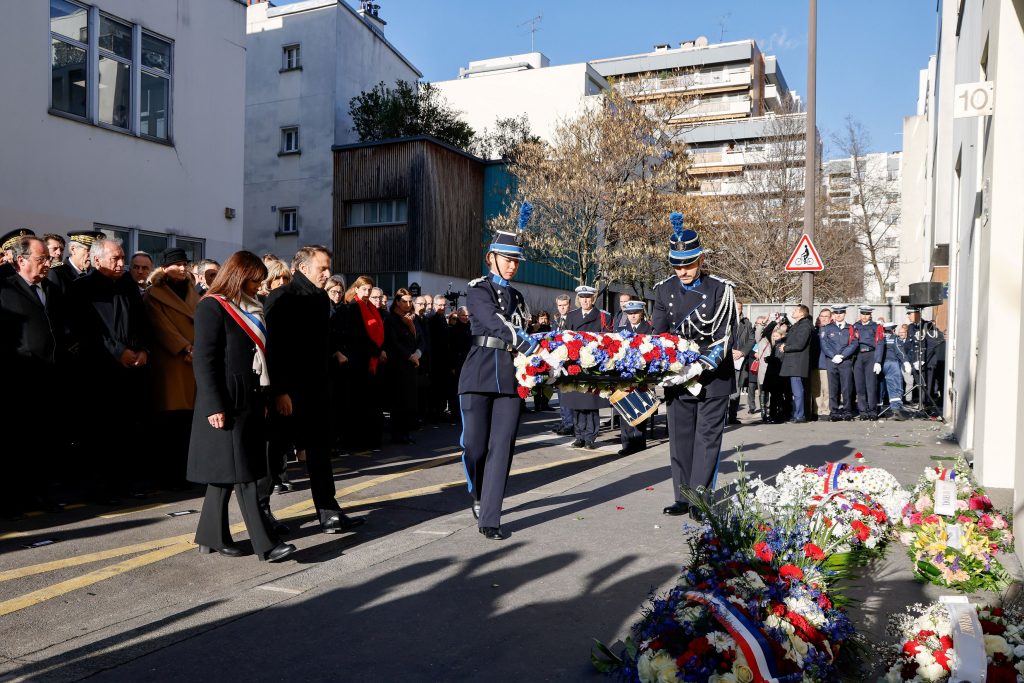
France’s President Emmanuel Macron and Mayor of Paris Anne Hidalgo, flanked by France’s former President Francois Hollande and France’s Prime minister Francois Bayrou, attend a commemoration marking 10 years since an Islamist attack on the Charlie Hebdo satirical newspaper and the Hypercacher jewish supermarket outside the weekly’s former offices in Paris, France on January 7, 2025. LUDOVIC MARIN/Pool via REUTERS
Critics of Charlie Hebdo argue that the Mohammad cartoons toe the line of Islamophobia. On the other hand, defenders of the magazine observe that the magazine critiques all religions, including Christianity.
The day following the initial attack, multiple patrons from a Jewish supermarket were taken hostage by another gunman who was also later linked to Al-Qaeda. When the police stormed the premises, 15 hostages escaped and four were found dead.
In the days after the attack people around the world marched under the slogan “Je Suis Charlie” (I am Charlie), and in Paris over 2 million people joined hands, in a march fronted by various heads of state.
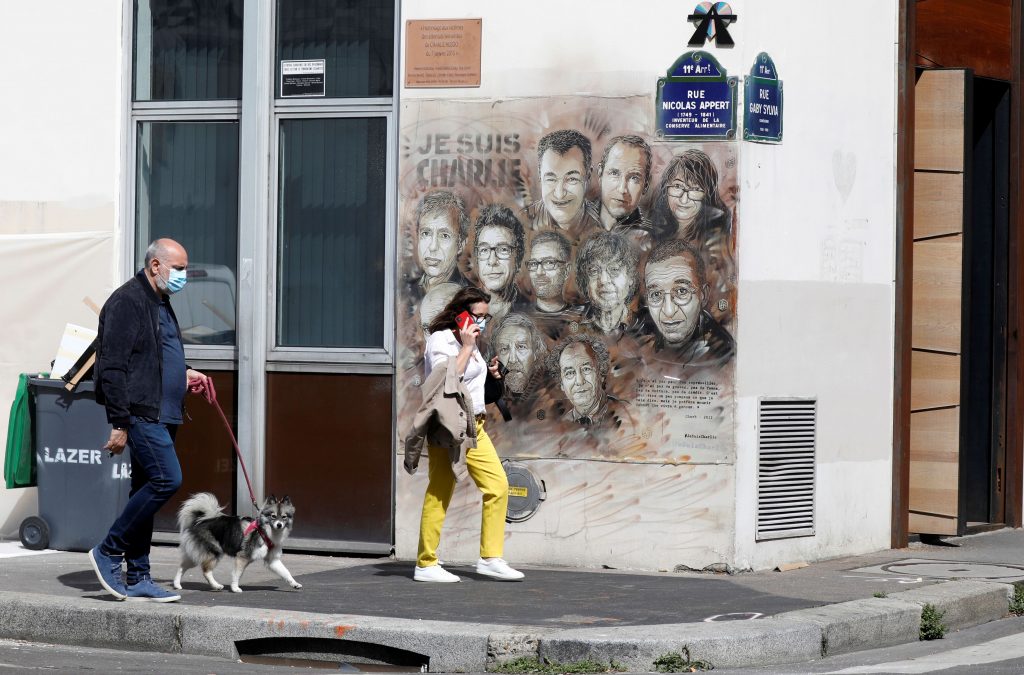
People walk past the artwork of French street artist Christian Guemy, also known as C215, in tribute to members of satirical magazine Charlie Hebdo, painted on a facade near the magazine’s former offices as Paris court prepares for the opening of the trial of the January 2015 Paris attacks against Charlie Hebdo satirical weekly magazine, a policewoman in Montrouge and the Hyper Cacher kosher supermarket, in Paris France, August 28, 2020. Picture taken August 28, 2020. REUTERS/Charles Platiau
Former French president François Hollande told Reuters, “We had to act and we did so responsibly, aware that we weren’t finished and that there would be other tragedies. And there were.”
According to the BBC, Charlie Hebdo continues to successfully circulate their magazine from a secret location where their editors are protected by bodyguards.
The anniversary of the Charlie Hebdo attack serves as a grim reminder of the precarious balance between freedom of expression and respect for cultural and religious sensitivities. The broader debate about the limits of satire and the role of a free press in a pluralistic society remains as pressing as ever.
In an interview with the BBC, Laurent Saurisseau, a cartoonist who survived the January 7 attack, said, “The desire to laugh will never disappear. Satire has one virtue that has got us through these tragic years—optimism. If people want to laugh, it is because they want to live.”
